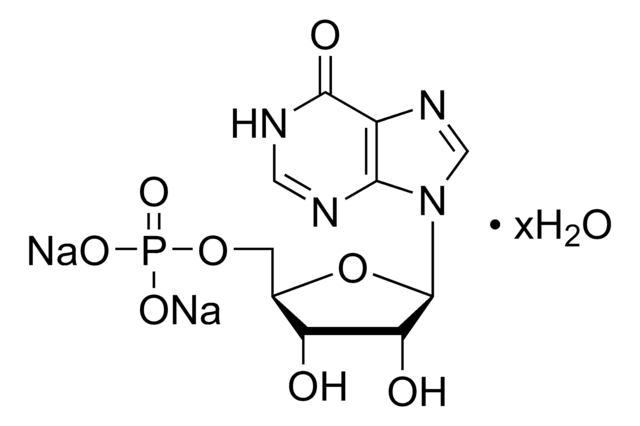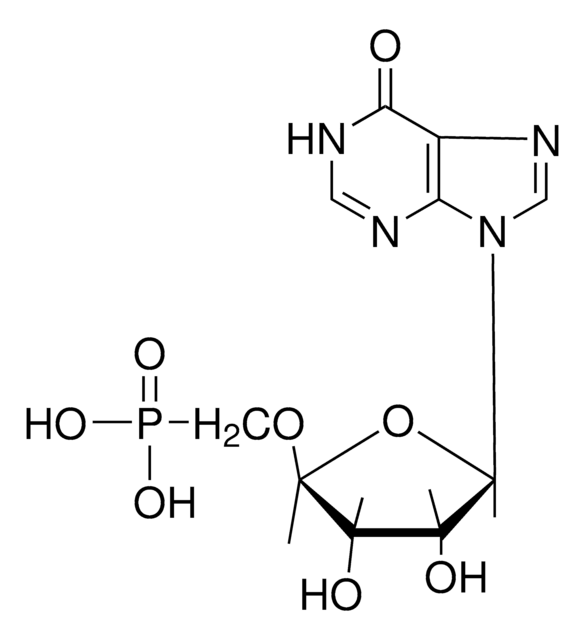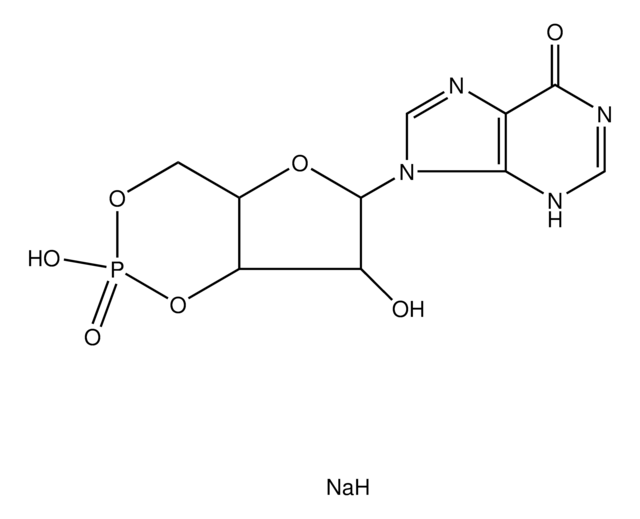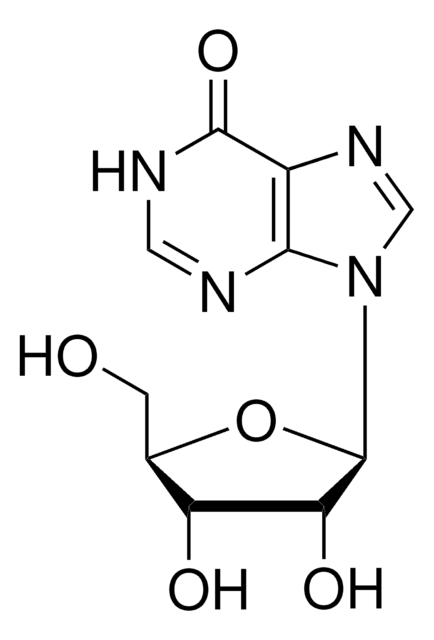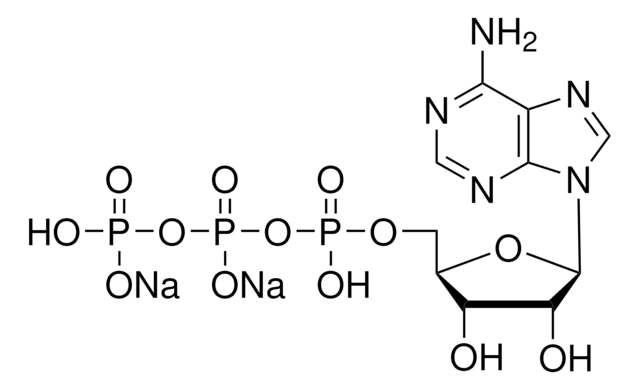I0879
Inosine 5′-triphosphate trisodium salt
≥95%
Synonym(s):
ITP
About This Item
Recommended Products
Quality Level
Assay
≥95%
shipped in
dry ice
storage temp.
−20°C
SMILES string
[Na].OC1C(O)C(OC1COP(O)(=O)OP(O)(=O)OP(O)(O)=O)n2cnc3C(=O)N=CNc23
InChI
1S/C10H15N4O14P3.Na.H/c15-6-4(1-25-30(21,22)28-31(23,24)27-29(18,19)20)26-10(7(6)16)14-3-13-5-8(14)11-2-12-9(5)17;;/h2-4,6-7,10,15-16H,1H2,(H,21,22)(H,23,24)(H,11,12,17)(H2,18,19,20);;
InChI key
RIERCUPIZLBNFQ-UHFFFAOYSA-N
Gene Information
human ... HRAS(3265)
Looking for similar products? Visit Product Comparison Guide
Related Categories
Application
Biochem/physiol Actions
Preparation Note
Storage Class Code
11 - Combustible Solids
WGK
WGK 3
Flash Point(F)
Not applicable
Flash Point(C)
Not applicable
Regulatory Listings
Regulatory Listings are mainly provided for chemical products. Only limited information can be provided here for non-chemical products. No entry means none of the components are listed. It is the user’s obligation to ensure the safe and legal use of the product.
EU REACH Annex XVII (Restriction List)
Certificates of Analysis (COA)
Search for Certificates of Analysis (COA) by entering the products Lot/Batch Number. Lot and Batch Numbers can be found on a product’s label following the words ‘Lot’ or ‘Batch’.
Already Own This Product?
Find documentation for the products that you have recently purchased in the Document Library.
Customers Also Viewed
Our team of scientists has experience in all areas of research including Life Science, Material Science, Chemical Synthesis, Chromatography, Analytical and many others.
Contact Technical Service